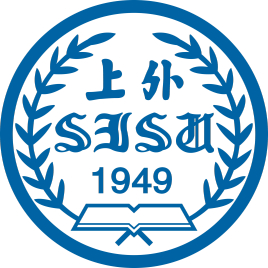海外发声|上外学者刘中民在Global Times发表评论文章,谈美国从阿富汗撤军问题

2021年5月24日,上外中东研究所刘中民教授在Global Times发表评论文章“China cares for peace, not power vacuum in Kabul”(中国关心的是和平,不是喀布尔的权力真空)(见Global Times2021年5月24日第6版),全文如下:

China cares for peace, not power vaccum in Kabul
As the US' withdrawal from Afghanistan continues, those in Washington opposing the military pullout are raising their voices. They have warned against the serious consequences for the region the US's retrograde could bring, including China, Russia and Iran filling a power vacuum in the war-torn country. According to Japan's media outlet Nikkei Asia, David Helvey, acting assistant secretary of defense for the US's Indo-Pacific security affairs, said at a US Senate Armed Services Committee hearing on Thursday that, China does have an interest in Afghanistan. Helvey added, That China's influence could be used to undermine stability, instead of reinforce stability or support stability, obviously, that's something that we've got concern about.
This reflects Washington's contradictory attitude and its own dilemmas when it comes to the Afghan issue. On the one hand, Washington is eager to get rid of the Afghanistan burden despite the mess it has created. On the other hand, it views the efforts by other countries to help stabilize the situation as raw ambition to seize control in the power vacuum.

The Afghan war the US waged after the 9/11 attacks has lasted for nearly 20 years. During this time, Washington eradicated terrorism on its own soil, but left a mess in Afghanistan. The US cannot win this war that has lasted for two decades. Any further involvement will mean that Washington will become increasingly incapable of dominating Afghan affairs. So the US is withdrawing its troops even though conditions are not ripe to do so. The irresponsible pullout has led to many deplorable results. One is recent terrorist attacks that are only intensifying.
The US is now facing a serious dilemma with its Middle East and West Asia policy. No matter the Afghan issue or the latest Israel-Palestine conflicts, Washington clearly has become increasingly unable to cope with thorny issues in the Middle East as it wished. From President Obama to Trump to Biden, there is an overall trend that Washington is shrinking its footprints in the Middle East and West Asia. With this trend continuing, many interpretations in the US hold that China is ambitious to fill the vacuum left by Washington. But Beijing has no interest in playing the role as a challenger to the US in the Middle East and West Asia.
Take the Afghan issue as a case in point. The US is the fundamental reason for the turbulence in Afghanistan, while China is always a force that has been committed to fostering peace in its western neighbor. China's participation in the international society's efforts to promote the resolution of the Afghan issue is not meant to fill any power vacuum. China is willing to see stability and peace in Afghanistan because it conforms to China's national interests to maintain stability and peace on China's western border.
State Councilor and Foreign Minister Wang Yi elaborated China's position on the Afghan situation earlier this month at the second China+Central Asia (C+C5) Foreign Ministers' Meeting. He emphasized that the peace and reconciliation process in Afghanistan should first of all implement the principle of Afghan-led and Afghan-owned. He also said that as close neighbors of Afghanistan, Central Asian countries should make due contributions to the final settlement of the Afghan issue. The Shanghai Cooperation Organization (SCO) should also play its due role for the long-term peace and stability in Afghanistan, he said.
China's participation in the Afghan issue is carried out within multilateral frameworks, such as the UN and the SCO. It hopes to work with countries concerned to jointly promote stability in Afghanistan. There is no such a strategy that China wants to dominate the Afghan issue.
However, many nervous nellies in Washington tend to overly interpret China's involvement in the region. For example, US Republican Sen. Marsha Blackburn of Tennessee even raised the possibility of China using its Belt and Road Initiative (BRI) to gain unfettered access across Afghanistan to Iran - potentially connecting the two American rivals. Her wild imagination is a stereotyped malicious misinterpretation of the BRI from the geopolitical perspective. China doesn't have such strategic arrangement that is linked to Iran in Afghanistan at all.
The US' disorderly and irresponsible withdrawal from Afghanistan to relieve itself from the burden of the war has messed up the country and the region. Meanwhile, it has treated the endeavors of other countries and regional organizations to foster stability as an eyesore. The world has now known the US' petty mind well. They can see what awful mess it has left.
来源|Global Times
编辑|闫晓梦
□ 海外发声|上外学者范鸿达在China Daily发文:US must help end Middle East conflict
□ 海外发声|上外学者章远在China Daily发表评论文章:Loss of confidence
□ 海外发声|上外学者丁隆在Global Times发表评论文章,谈巴以冲突对美国从中东收缩的影响
□ 海外发声|上外学者张翼在Shanghai Daily发表评论文章:用故事展现城市魔力
□ 上外学者丁隆在China Daily发表评论文章:The truth prevails
□ 海外发声|上外学者范鸿达在在伊朗报纸Etemad发表评论文章:从中国视角看伊朗和美国
□ 海外发声|上外学者高健在《环球时报》发表评论文章:污蔑与诽谤不应成为欧洲学者的标签
□ 海外发声|上外学者章远在伊朗《德黑兰时报》发文:疫情时代国家间的信任是不得不稀缺的吗?
□ 海外发声|上外学者忻华在《环球时报》发表评论文章:Can India capitalize on China-EU frictions?
□ 海外发声|上外学者范鸿达在伊朗报纸《Hamshahari》发表评论文章:中国伊朗为何互相需求
□ 海外发声 | 上外学者范鸿达在《中国日报》发表评论文章:China, Iran take path to shared future
□ 海外发声 | 上外学者范鸿达在伊朗报纸《Entekhab》发表评论文章:中国外长对伊朗的访问为什么重
□ 海外发声|上外学者杨成在《环球时报》发表评论文章:美国精英对中俄关系再现冷战时期草率评估
□ 海外发声 | 上外学者范鸿达在《德黑兰时报》发表评论文章:中国是伊朗多元化外交的理想伙伴
□ 海外发声|上外学者高健在《环球时报》发表评论文章:“全球英国”的未来向何处去?
□ 海外发声|上外学者潜旭明在国际期刊Araa Magazine发表评论文章:拜登执政后的中美关系与中国—海湾合作


●●●●●
阅读上外多语种资讯,欢迎访问
http://global.shisu.edu.cn
© 上海外国语大学微信公众平台
服务号:SISUers / 订阅号:sisu1949
关注公众号:拾黑(shiheibook)了解更多
友情链接:
关注数据与安全,洞悉企业级服务市场:https://www.ijiandao.com/
安全、绿色软件下载就上极速下载站:https://www.yaorank.com/
找律师打官司就上碳链网:https://www.itanlian.com/







 上海外国语大学
上海外国语大学
 关注网络尖刀微信公众号
关注网络尖刀微信公众号



